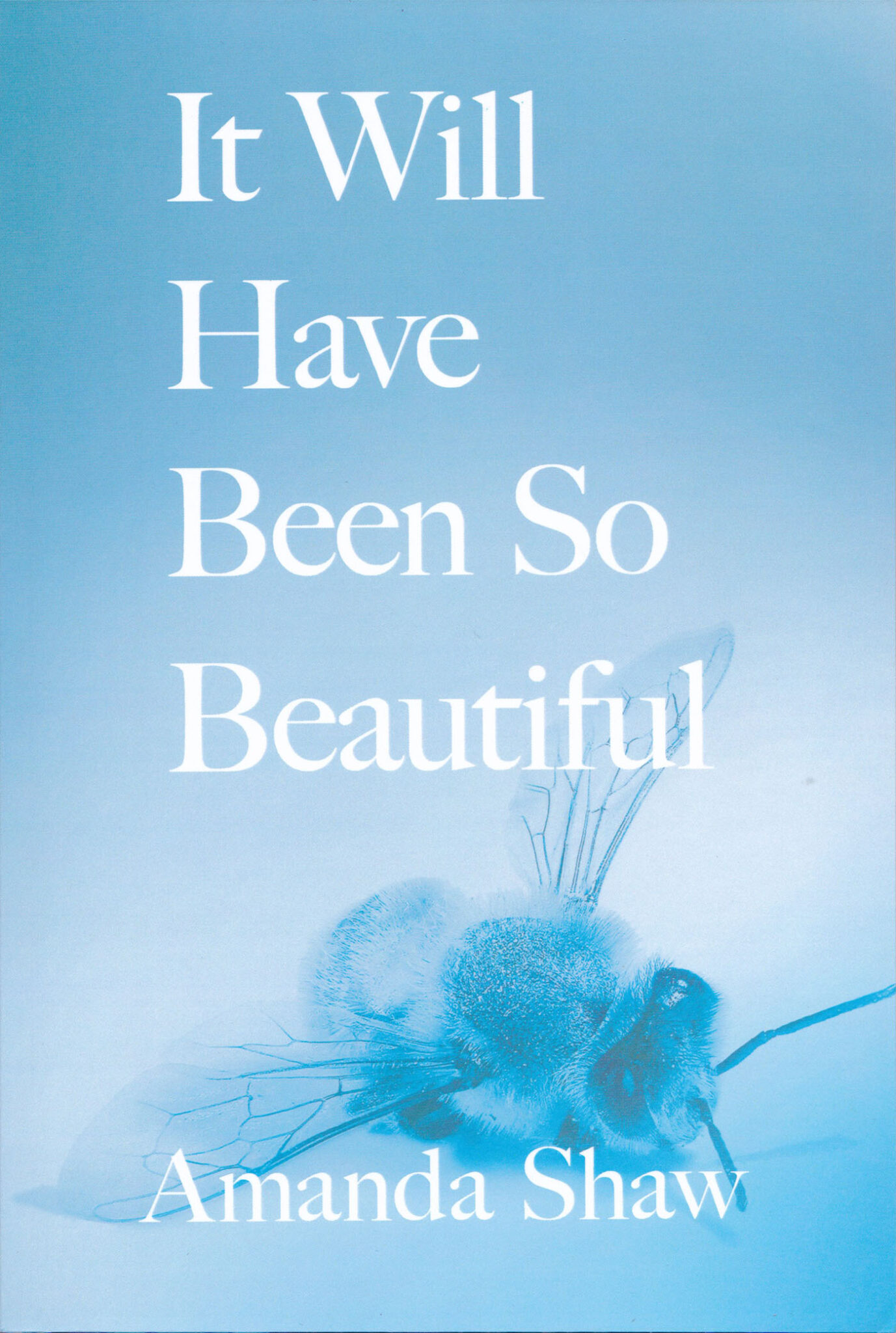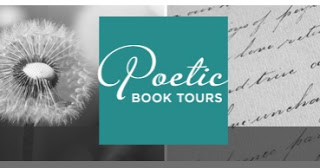
About:
TITLE: It Will Have Been So Beautiful
AUTHOR: Amanda Shaw
GENRE: Contemporary American Poetry
PUBLISHER: Lily Poetry Review Books
THEMES: Love, Loss, Childhood, Displacement, Human Experience, Climate Change
With urgency and compassion, humor and wonder, Amanda Shaw’s debut poetry collection “It Will Have Been So Beautiful” examines the many dimensions of what it means to call anything “home,” including the earth as we know it. In a manner reminiscent of Eugène Atget, who wrote “will disappear” on his photographs of turn-of-the-century Paris, Shaw captures the unique melancholy of living in a time of unknowable change.
Shaw’s powerful poetry explores the line between love and loss, as she implores us to find a more profound commitment to life in all its forms. At times playful and ironic, the poems celebrate language’s sonic capacities, probing art’s potential to move us from mourning to joy. -quoted from the author’s website.
links of interest: author’s website–instagram–facebook
—————–
Read on for Amanda’s interesting guest post about poetry, her writing process and soccer. She also shares snippets of her poems which I really enjoyed.
Guest Post:
I have to confess something.
Like all writers, I revise—obsessively, every single preposition and article. I’m talking gnat’s horizon-level stuff, like the relative advantages of the en- and em- dashes. Nothing I write gets published without having been revised ad nauseum. Nevertheless, I began to write this guest post in an unconventional situation.
When you think of a 49-year-old female lyric poet in the midst of composing a draft, what do you picture, besides an army of cats?
I can confidently guess you’re not imagining me with one eye on my laptop, the other on the Euro soccer tournament, the equivalent of the World Cup for European teams. With a first book of poems out as of March, I should be emailing potential reviewers and bookstores like mad, composing my next brilliant Instagram post, or promoting my upcoming reading on July 3. I should be looking for ways to gain followers, establish my “brand.” I should be convincing you to read my book, or all the books published by my incredible press. At the very least to READ MORE POETRY. Instead, I’m watching for a potential Harry Kane goal in the English soccer team’s match with Denmark. And I’ll remain here for Spain v. Italy, up next.
Because, y’all, this girl needs a break.
See, I’ve been doing all of the above non-stop since the manuscript went to print. And there is nothing like a soccer game with the best players in the world, representing their nation instead of whichever team just paid them $100 million. As the far right gains alarming traction in Europe, the French team dominates precisely because of second-generation Africans and other immigrant players. Along with Macedonian, Cameroonian, Swiss-Nigerian, Swiss-Ghanaian, Swiss-Senegalese, Swiss-Dominican, Spanish-Chilean, and Tunisian-Turkish players, Switzerland’s team includes two children of the Kosovar Albanians who emigrated during the war in the late nineties. The same Kosovars right-wing politicians wanted to keep out. I don’t much care for professional sports, but this happens for exactly one month every two years, and there is no other entertainment that makes me stop fulfilling the tortured poet stereotype.
My Swiss husband might tell you I’m still a poet when I watch, because I delight in the odd turns of phrase commentators use. I love hearing the former Italy captain mention an “exciteful” play, or trip so hard over English syntax that you can’t figure out where a sentence began and whether it actually ended. I’m annoyed when someone says “nervy” instead of “nervous.” (Doesn’t “nervy” mean bold? as in, “You’ve got a lot of nerve?”). I complain about repeated expressions like “finding little pockets of space,” and “He’s going to want that one back” when a player misses a scoring opportunity. And I giggle when the captioning breaks off after the aforementioned Italy captain’s non-sentence, as though even the AI just sighed and gave up trying to transcribe the word salad.
In this, my husband is right: I can’t resist a metaphor. Solet’s imagine my book as a game.
On the one side, there are poems about the lowest point in my life and ongoing struggles with physical and emotional trauma. There are poems about Italy, where I rediscovered that life was gorgeous and vivid, full of art and human ingenuity; that the light of the sun is precious. There are poems about childhood in New Hampshire, where I am now. And there are poems about why I’m in NH right now, which is that my mother has Alzheimer’s and I am witnessing the slow deterioration of her mind. On the other, there are exactly no poems about soccer. It’s not even a competition. If it were, these would be the stats:
POEMS ABOUT DANCING BEES, DEPRESSED FISH, A NUN ON A CELL PHONE, THE LIFESPAN OF THE UNIVERSE, SPACE TRAVEL, GARDEN SOIL, A HOT AIR BALLOON, CHARTRES CATHEDRAL, THE HUMAN MIND, HARRY POTTER AND LORD OF THE RINGS, ETC.: 45
POEMS ABOUT SOCCER: 0
Thing is, viewed a certain way, soccer is behind all of it. I started to watch these tournaments just after a very low point, during the 2006 World Cup (Italy won). In 2010, I watched on huge screens in the Campo dei Fiori, in the center of historic Rome — around the corner from the apartment where I wrote the first poems in the book. In 2012, I watched the Spaniards win the Euro in a DC bar, having just moved back to the States and trying to make a go of balancing a career with writing. In 2014, I was visiting Maine with my one-year-old niece, star of three poems, when Germany beat Brazil 7-0. And in 2016, I stopped in a rural dive bar outside of Charlotte, NC to watch an Italy game, on the way to my first semester of an MFA program.
So I can map this book against a soccer tournament timeline. Take this excerpt from “Spring, Room 210,” which pre-dates that 2006 World Cup:
The taut vowels of men salting the steps
slip through gaps
into my room. Out the locked window
it’s April in Vermont
and I am away.
…
Earth burgeoning outside
these two-hundred-year-old panes
revoke your newest confessions
your crocuses
Take this stanza from “Nothing But Water,” which I wrote in November of 2009:
Across waves I’ve traveled backward
to now—to what remains of Rome,
where weeks of November rains
have brought the smell of mold
instead of frost. Thick curtains
leave their ancient must
on the hands that draw them closed;
I learn again that water can be hard
And take this part of “Ruthie’s Art,” which I wrote about that 1-year-old, whose mother humored me by letting me watch the Germany-Brazil game from our Maine vacation house:
Sleepovers you wake me at dawn
to shape red paper avatars
of the hearts
unfolding for you. Girl,
that sky is always cornflower blue,
your shark fins come in twos,
whole planets hula or twirl
to whichever off-beat you choose.
Under your dandelion stars
we clap our many-fingered hands
from the good seats
I could go on, but perhaps you can see why this post IS, in the end, about writing and loving books and poetry, and remembering how far I have come as a writer. I can look at this map and see the journey, the sorrow and longing turning to love and joy. There was no way the woman who was ready to be done with life 18 years ago could ever have imagined she’d have a book at all, let alone be reading at the oldest poetry bookstore in the country, where Elizabeth Bishop once read.
Maybe this is the best argument for you to read more poetry. It’s about everything: soccer, new crocuses, the smell of ancient cities, a little girl delighting in her Crayola palette. Above all, it’s about finding the will to live in the tiny pockets of celebration, as well as the larger human symphony still happening on this great blue-green planet.
Readers, Harry Kane just scored. Time to go.
***
The Grolier reading is on July 3, at 7pm, and it will be broadcast online as well! Register at https://lp.constantcontactpages.com/ev/reg/tftsxv6/lp/cd624ea9-a493-4626-812e-3244670d5607
Thanks Amanda for your guest post!
And thank you to Poetic Book tours for making this possible. Poetic Book Tours — Where Readers Come to Poetry – @PoeticBookTours–Poetic Book Tours on Facebook

[…] 24: the bookworm (guest […]
LikeLike
Thank you for hosting Amanda!
LikeLiked by 1 person
Thank you!
LikeLike
This was a great read.. learned a lot about Ms. Shaw.
LikeLiked by 1 person
Glad you enjoyed the guest post, I thought it was interesting too.
LikeLike